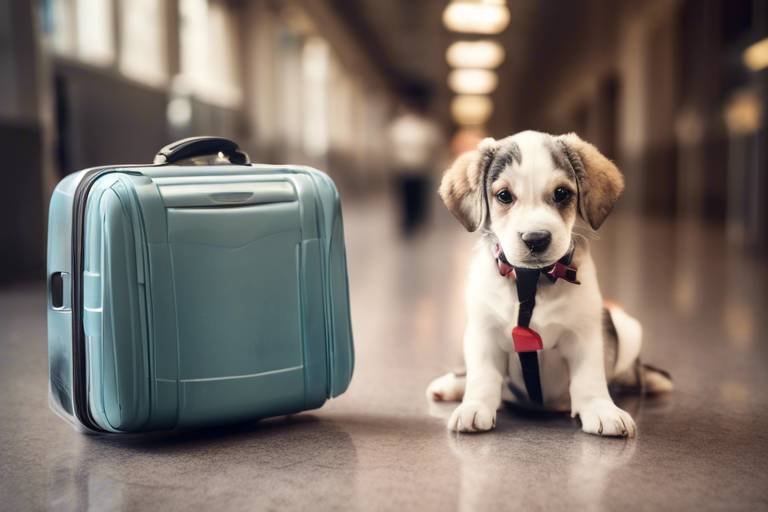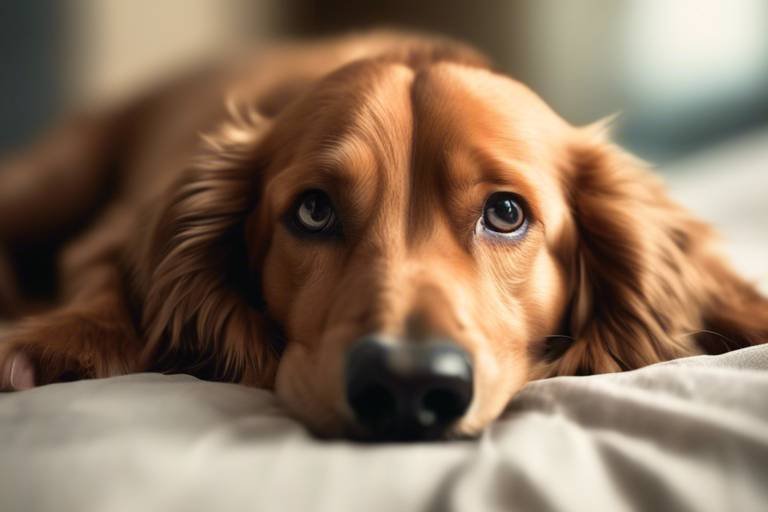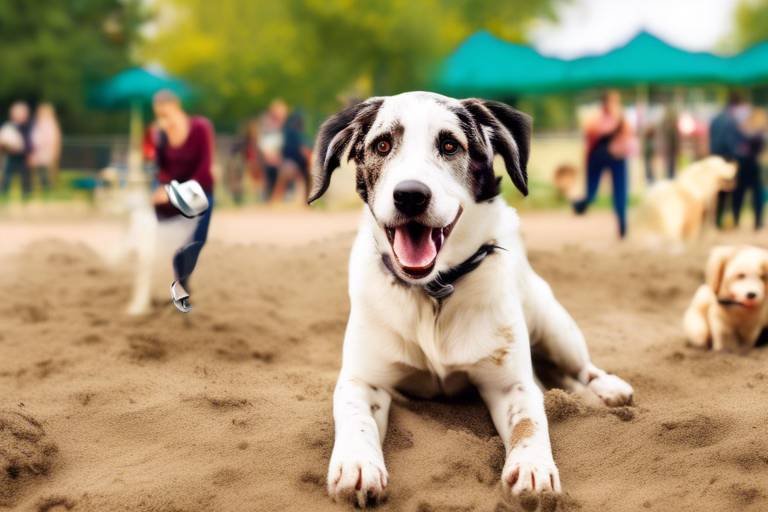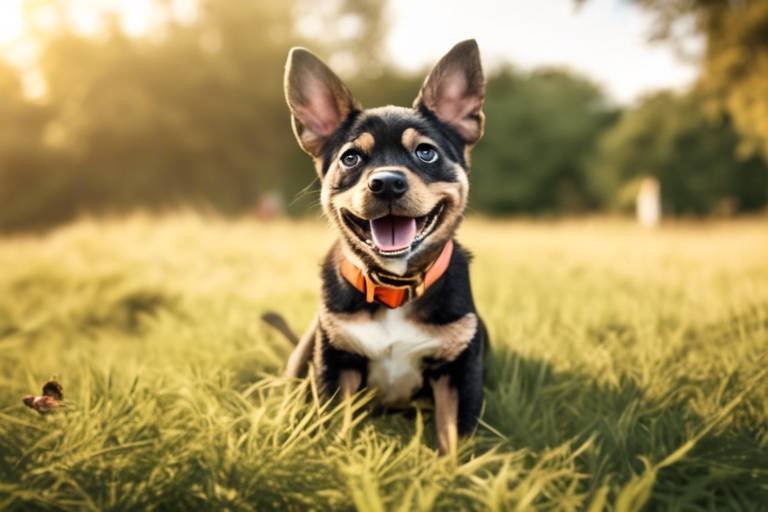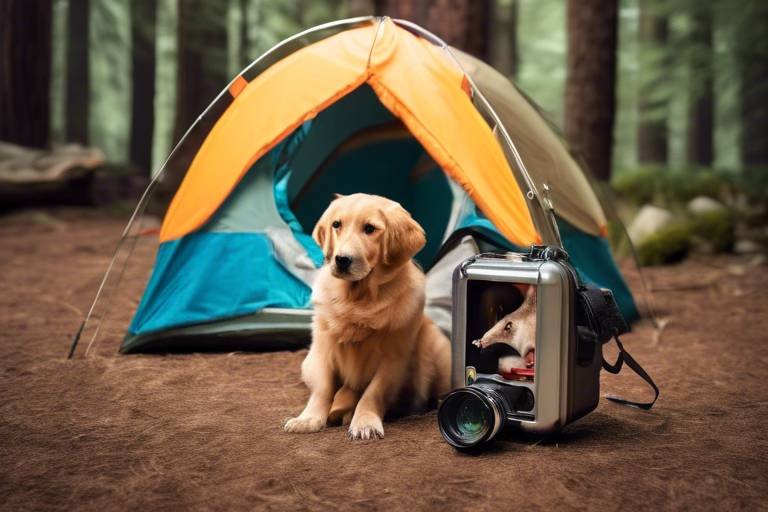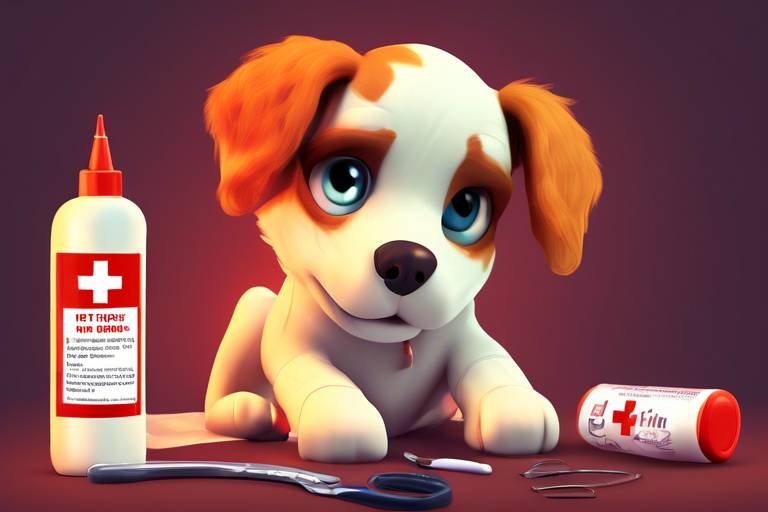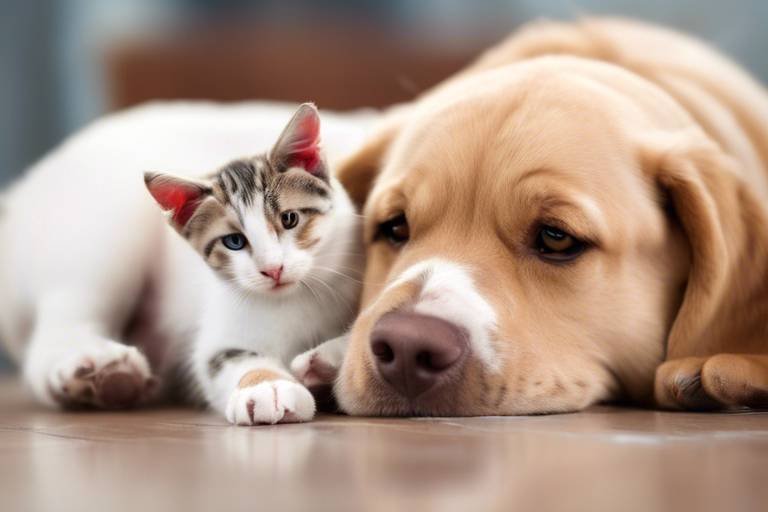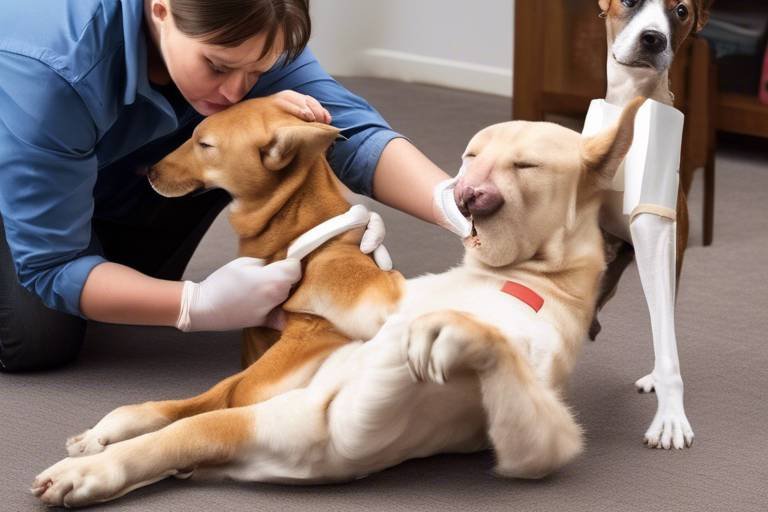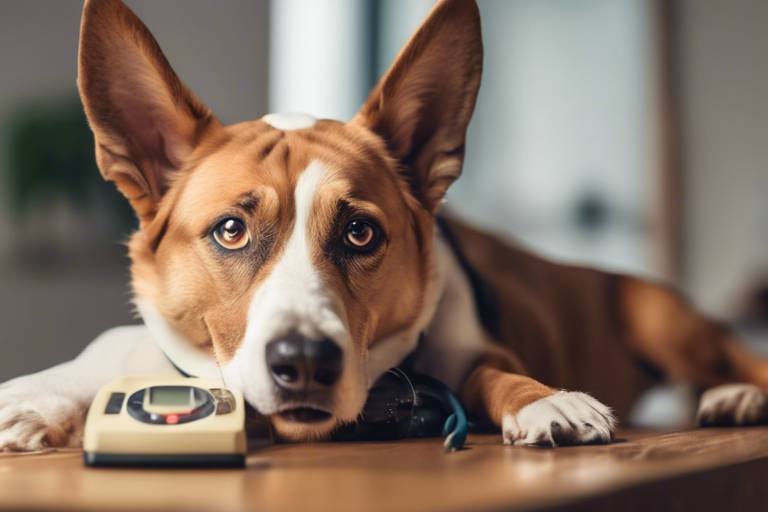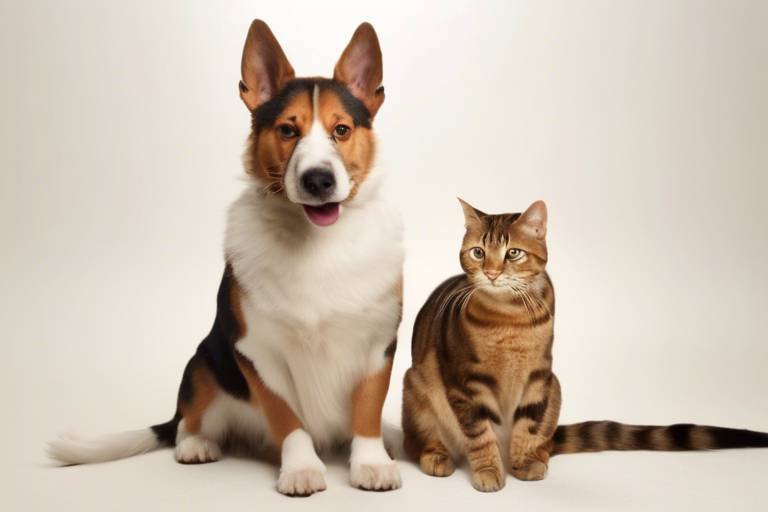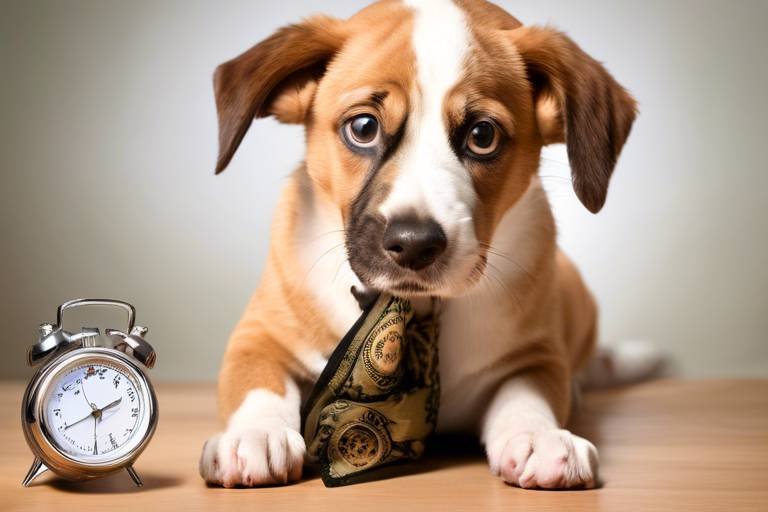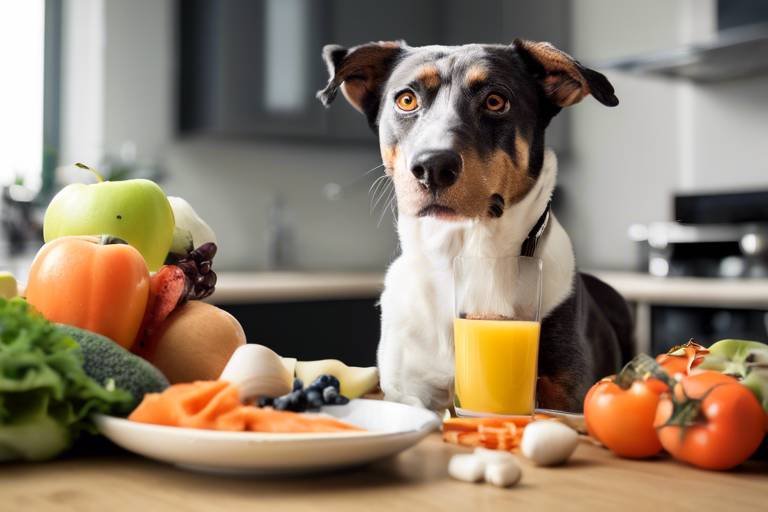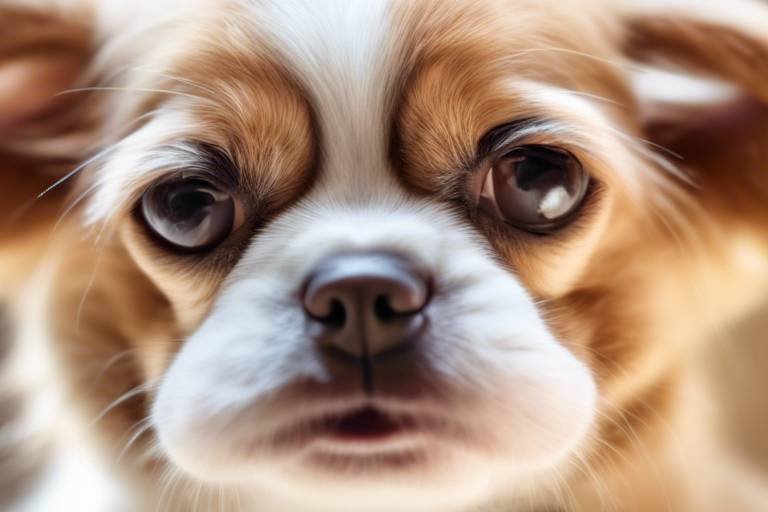What to Do If Your Pet Is Experiencing Diarrhea
When your furry friend is facing the discomfort of diarrhea, it can be a stressful experience for both of you. As a pet owner, it's essential to know how to handle this situation with care and empathy. Diarrhea can be a symptom of various underlying issues, and understanding the right steps to take can make all the difference in your pet's recovery. So, what should you do? Let's dive into the details!
Diarrhea in pets is not just an inconvenience; it can indicate that something is amiss in their digestive system. Factors such as sudden dietary changes, infections, or even underlying health problems can lead to this condition. Recognizing the signs, such as frequent loose stools, urgency, and changes in appetite, is crucial. By understanding what diarrhea means for your pet, you can take appropriate action to help them feel better.
Identifying the source of your pet's diarrhea is key to effective treatment. Various factors can contribute to this issue, and being aware of them can help you take the necessary steps. Here are some common causes:
- Dietary Indiscretion: Pets are notorious for eating things they shouldn't, whether it's a sudden change in their food or sneaking a snack from the trash. This can wreak havoc on their digestive system.
- Infections: Bacterial or viral infections can lead to gastrointestinal distress, causing diarrhea.
- Parasites: Intestinal parasites, such as worms, can also be a significant cause of diarrhea in pets.
- Underlying Health Conditions: Conditions like pancreatitis or inflammatory bowel disease may manifest as diarrhea.
One of the most common culprits of diarrhea in pets is dietary indiscretion. This term refers to pets consuming inappropriate foods or experiencing sudden dietary changes. Imagine suddenly switching from a gourmet meal to a completely different cuisine—your stomach might not handle it well either! To prevent this, always introduce new foods gradually and monitor your pet's reactions.
While it might be tempting to share your food with your pet, some human foods can be harmful. Here’s a quick list of foods to keep away from your furry friend:
- Chocolate
- Onions and garlic
- Grapes and raisins
- Avocado
- Alcohol
Keeping these foods out of reach is crucial to maintaining your pet's digestive health. Remember, what might be a tasty treat for you could be toxic for them!
When switching your pet's diet, it's important to do so gradually. A sudden change can confuse their digestive system, leading to diarrhea. A good rule of thumb is to mix the new food with the old food over a week, slowly increasing the new food's proportion. This gentle transition can help prevent any gastrointestinal upset.
While mild diarrhea can often be managed at home, some signs indicate that it's time to seek professional help. If you notice any of the following symptoms, don't hesitate to contact your veterinarian:
- Diarrhea lasting more than 24 hours
- Blood in the stool
- Vomiting
- Signs of dehydration (dry gums, lethargy)
- Loss of appetite
Your pet's health is paramount, and timely intervention can prevent more serious issues down the line.
If your pet's diarrhea is mild, there are several home remedies you can try to help soothe their digestive system. Keep in mind, however, that these remedies are not substitutes for veterinary care if symptoms persist.
One effective approach is to fast your pet for 12-24 hours. This allows their digestive system to rest and recover. However, make sure to provide plenty of fresh water to keep them hydrated. Dehydration can be a significant concern during episodes of diarrhea, so monitor their water intake closely.
After the fasting period, you can reintroduce food with a bland diet. Options such as boiled chicken (without skin) and plain white rice can be gentle on their stomach. Gradually reintroduce their regular food over a few days to ensure their digestive system can handle it.
Knowing when to consult a veterinarian is essential for your pet's health. If your pet exhibits any of the aforementioned critical signs, or if their diarrhea is accompanied by severe symptoms like persistent vomiting or lethargy, it's time to seek professional medical intervention. Remember, it's always better to be safe than sorry when it comes to your furry companion!
Q: Can I give my pet over-the-counter medications for diarrhea?
A: It's best to consult your veterinarian before administering any medication to your pet, as some human medications can be harmful to animals.
Q: How long does diarrhea usually last in pets?
A: Mild cases of diarrhea can resolve within a day or two, but if it persists longer, you should seek veterinary advice.
Q: What can I do to prevent diarrhea in my pet?
A: Gradually introduce new foods, avoid giving them human food, and ensure they are up-to-date on vaccinations and parasite control.
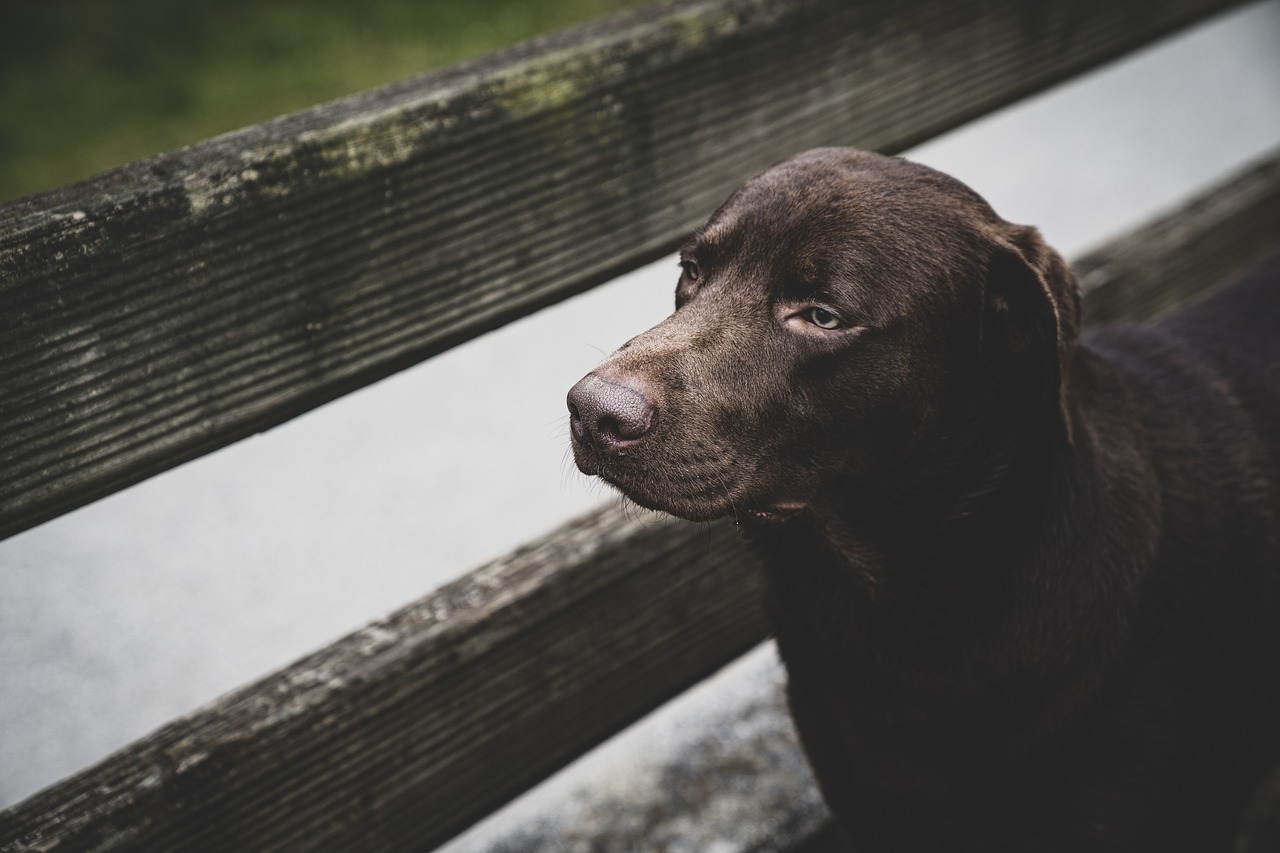
Understanding Diarrhea in Pets
Diarrhea in pets is more than just an inconvenience; it's a symptom that can signal various underlying issues. Just like humans, pets can experience digestive disturbances for a multitude of reasons. Understanding these causes is crucial for effective treatment and ensuring your furry friend returns to their happy self. Diarrhea can be a result of dietary changes, infections, or even underlying health problems. Recognizing the signs early on can make all the difference.
When your pet is experiencing diarrhea, you might notice them making frequent trips outside or having accidents in the house. Their stool may be watery, loose, or even contain blood or mucus. These symptoms can be alarming, but they are often the body's way of expelling harmful substances. The key is to pay attention to your pet's overall behavior. Are they still playful? Eating and drinking normally? Or are they lethargic and refusing food? These factors can help you determine the severity of the situation.
In many cases, diarrhea can be attributed to dietary indiscretion. This occurs when pets consume something that doesn’t agree with their digestive system, whether it’s a new type of food, table scraps, or even garbage. Pets are notoriously curious and may not think twice before munching on something they shouldn’t. Other common causes include:
- Infections: Bacterial or viral infections can upset your pet's stomach.
- Parasites: Worms and other parasites can lead to gastrointestinal disturbances.
- Medical Conditions: Conditions like pancreatitis or inflammatory bowel disease can cause chronic diarrhea.
Understanding the potential causes of diarrhea can empower pet owners to take appropriate action. If you suspect that your pet's diarrhea is due to dietary indiscretion, it's essential to monitor their food intake and avoid sudden changes in their diet. However, if the diarrhea persists for more than a day or two, or if your pet shows other concerning symptoms, it’s time to consult a veterinarian.
In summary, recognizing the signs of diarrhea and understanding its potential causes is vital for your pet's health. Keeping an eye on their behavior and dietary habits can help you catch issues early, leading to quicker resolutions and happier pets. Remember, while some cases can be managed at home, always trust your instincts—if something feels off, don’t hesitate to seek professional help.
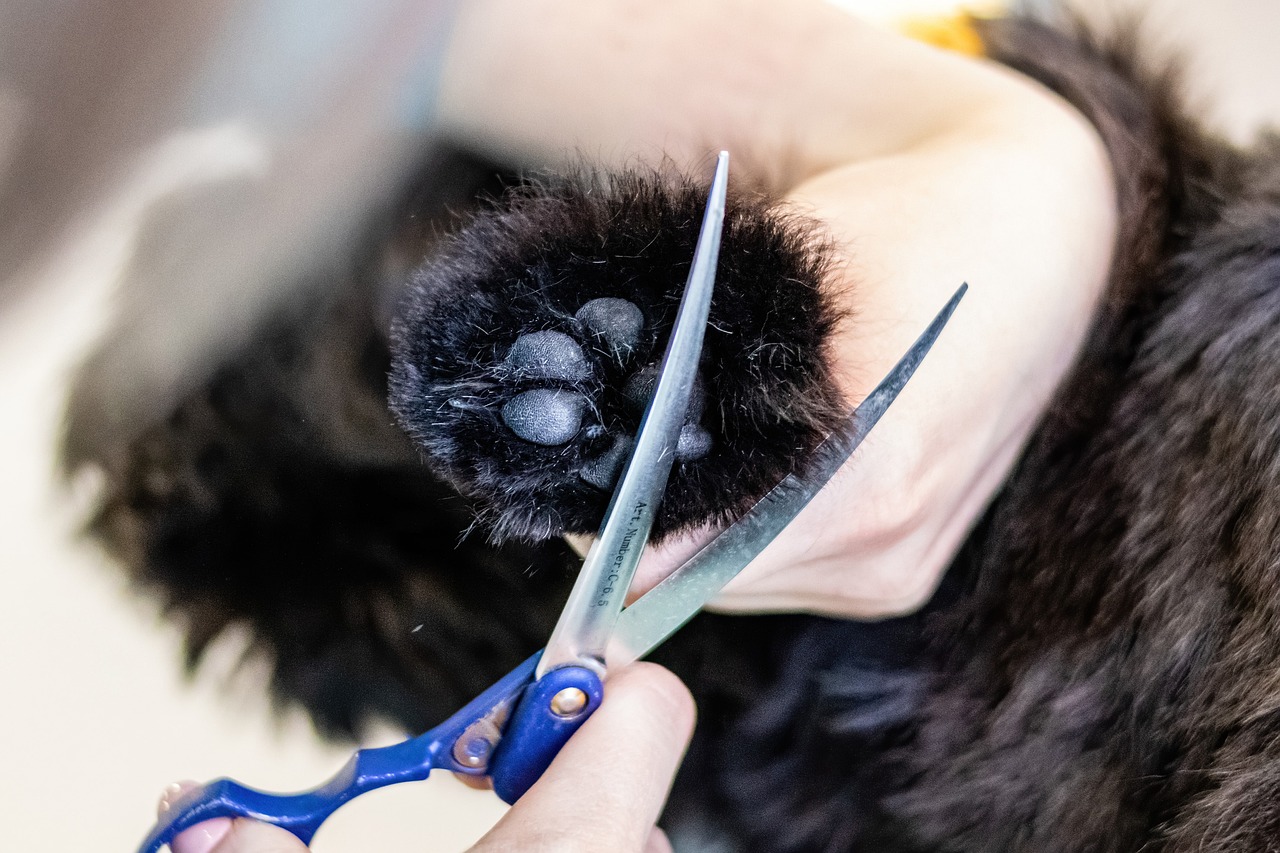
Common Causes of Diarrhea
Understanding the common causes of diarrhea in pets is essential for every pet owner. Diarrhea can be more than just an inconvenience; it can signal underlying health issues that require attention. One of the most prevalent causes is dietary indiscretion, which occurs when pets consume something they shouldn't, like spoiled food or table scraps. This can lead to an upset stomach and, ultimately, diarrhea. Imagine your pet as a little garbage disposal; sometimes, they just can’t resist the temptation of something that smells delicious, even if it’s not good for them!
Another significant cause of diarrhea is infections. These can be viral, bacterial, or even fungal in nature. For instance, viruses such as parvovirus can wreak havoc on a dog’s digestive system, while cats might suffer from feline panleukopenia. Infections often come with additional symptoms like vomiting, lethargy, or fever, so it’s crucial to monitor your pet closely if you suspect this might be the case.
Parasites are another potential culprit. Worms and protozoa can invade your pet’s intestines, leading to diarrhea as their bodies try to expel these unwanted guests. Common parasites include roundworms, hookworms, and giardia, which can be particularly nasty. Regular veterinary check-ups and preventive treatments can help keep these pesky parasites at bay.
Finally, underlying health conditions such as inflammatory bowel disease or even more serious issues like liver or kidney disease can manifest as diarrhea. If your pet experiences persistent diarrhea, it's essential to consult a veterinarian for a thorough evaluation. Remember, just like us, pets can have sensitive stomachs, and what seems like a simple case of diarrhea could be a sign of something more serious.
In summary, recognizing the common causes of diarrhea can empower you as a pet parent to take appropriate action. Whether it’s a case of dietary indiscretion, an infection, parasites, or a more serious health issue, being aware of these factors can help you keep your furry friend happy and healthy.
- What should I do if my pet has diarrhea? Start by monitoring their symptoms and consider home remedies for mild cases. If diarrhea persists or worsens, consult your veterinarian.
- Can I give my pet human food to help with diarrhea? Some bland human foods, like boiled chicken and rice, can be beneficial, but avoid giving them anything that could upset their stomach further.
- How can I prevent diarrhea in my pet? Gradually transition to new foods, avoid giving table scraps, and ensure regular veterinary check-ups to keep their digestive health in check.
Dietary Indiscretion
When it comes to our furry companions, their curious nature often leads them to explore the world through their taste buds. Unfortunately, this can sometimes result in , a term used to describe when pets consume something they shouldn't. This can range from a sudden switch in their food to sneaking a bite of your dinner. Just like humans, pets can have sensitive stomachs, and when they indulge in inappropriate foods, it can lead to digestive upset, including diarrhea.
Imagine your pet as a little gourmet chef, constantly on the lookout for new flavors, but without the culinary training to know what’s safe. When they munch on something that doesn’t sit well, it’s like a recipe gone wrong. This not only affects their digestive system but can also lead to more serious health issues if not addressed promptly. Some common culprits of dietary indiscretion include:
- Sudden changes in their regular food
- Table scraps or leftovers
- Inappropriate snacks like chocolate, grapes, or onions
- Access to garbage or spoiled food
To help prevent these mishaps, it’s crucial to maintain a consistent diet for your pet. Gradually introducing new foods is key; think of it as easing them into a new routine rather than throwing them into the deep end. If you’re considering switching their food brand or flavor, do it slowly over a week or two. Mix a small amount of the new food with their current food, increasing the new food's proportion gradually. This method helps your pet’s digestive system adapt, reducing the risk of gastrointestinal upset.
Furthermore, be vigilant about what your pet can access. Keep human food out of reach and educate your family and friends about the importance of not feeding pets table scraps. It’s essential to remember that not everything safe for humans is safe for pets. For example, while a small piece of chicken might seem harmless, ingredients like garlic or spices can lead to severe digestive issues for our furry friends.
In summary, dietary indiscretion is a common issue among pets that can lead to uncomfortable and messy consequences. By being proactive about their diet and monitoring what they consume, you can help keep their digestive systems happy and healthy. Remember, a little prevention goes a long way in ensuring your pet enjoys a long and healthy life!
- What are the signs of dietary indiscretion in pets? Look for symptoms like vomiting, diarrhea, and changes in appetite or behavior.
- How can I safely change my pet's diet? Introduce new foods gradually over a week or two to minimize digestive upset.
- What human foods should I avoid giving my pet? Foods like chocolate, grapes, onions, and anything heavily seasoned should be avoided.
- When should I consult a vet? If your pet shows persistent diarrhea, vomiting, or signs of distress, it’s best to seek professional help.
Human Foods to Avoid
When it comes to our furry friends, we often find ourselves tempted to share our meals with them. However, it’s crucial to remember that not all human foods are safe for pets. In fact, some can lead to serious gastrointestinal issues, including diarrhea. To keep your pet healthy and happy, here are some common culprits you should avoid:
- Chocolate: This sweet treat is a big no-no for pets. It contains theobromine, which can be toxic to dogs and cats.
- Onions and Garlic: Both can damage red blood cells in pets, leading to anemia. Even small amounts can be harmful!
- Grapes and Raisins: These can cause kidney failure in dogs, and the exact reason is still a mystery to veterinarians.
- Xylitol: Commonly found in sugar-free gum and candies, xylitol can lead to insulin release, resulting in hypoglycemia.
- Alcohol: Even a small amount can be dangerous, leading to vomiting, diarrhea, and even coma.
It's essential to keep these foods out of reach and educate family members about the risks. Remember, just because a food is safe for humans doesn’t mean it’s safe for pets. Always consult your veterinarian before introducing any new food into your pet’s diet.
In addition to avoiding certain foods, it's also wise to be cautious with table scraps. Many pets have sensitive stomachs, and what seems like a harmless bite could lead to digestive chaos. If you want to treat your pet, consider sticking to specially formulated treats or safe fruits and vegetables like carrots or blueberries.
Being proactive about your pet's diet can prevent many health issues, including diarrhea. Always prioritize their well-being over a moment of indulgence. By understanding what foods to avoid and making informed choices, you can help ensure your pet stays healthy and vibrant.
Q: What should I do if my pet accidentally eats something harmful?
A: If you suspect your pet has ingested a toxic substance, contact your veterinarian or an emergency animal clinic immediately. Time is of the essence in these situations!
Q: Can I give my pet human food as a treat?
A: Yes, but only if the food is safe for pets. Always research and consult with your vet before offering any human food.
Q: How can I tell if my pet is having a bad reaction to food?
A: Signs of a bad reaction include vomiting, diarrhea, lethargy, or unusual behavior. If you notice any of these symptoms, consult your veterinarian right away.
Gradual Dietary Changes
When it comes to your pet's diet, making gradual changes is key to preventing digestive issues like diarrhea. Think of it as taking baby steps rather than a giant leap! If you suddenly switch your pet's food, it can lead to gastrointestinal upset, much like how a sudden change in routine can throw us off balance. So, how do you make these transitions smoothly? First, start by mixing a small amount of the new food with their current food. This way, your pet's digestive system can adjust without being overwhelmed.
For instance, if you're switching from a dry kibble to a new brand, begin with a ratio of 25% new food to 75% old food. Over the next few days, gradually increase the new food while decreasing the old food. By the end of a week or so, you should aim for a complete transition to the new diet. Here's a simple breakdown of how you could structure this:
| Day | Old Food | New Food |
|---|---|---|
| 1-2 | 75% | 25% |
| 3-4 | 50% | 50% |
| 5-6 | 25% | 75% |
| 7 | 0% | 100% |
During this transition, keep an eye on your pet's stool. If you notice any signs of distress or diarrhea, slow down the process. It's perfectly okay to take a step back and give your pet's system more time to adjust. Remember, every pet is unique, and some may need a longer transition period than others. If your pet has a sensitive stomach, consider extending the transition to ten days or even longer.
Also, be mindful of your pet's overall health. If they have existing health conditions, consult your veterinarian before making any dietary changes. It's always better to be safe than sorry! By taking these gradual steps, you can help ensure that your pet enjoys their new food without the unpleasant side effects of digestive upset.
Signs That Require Veterinary Attention
While it’s common for pets to experience mild diarrhea from time to time, there are specific signs that should raise a red flag and prompt you to seek veterinary care. Ignoring these symptoms could lead to serious health issues for your furry friend. So, what should you be on the lookout for? First and foremost, if your pet has diarrhea that lasts for more than 24 hours, it’s time to consult your vet. Prolonged diarrhea can lead to dehydration, which can be particularly dangerous for pets.
Another critical sign to watch for is the presence of blood in your pet's stool. Blood can indicate a more severe underlying condition, such as infections or gastrointestinal disorders. If you notice your pet straining to defecate or experiencing significant pain while doing so, this is another urgent situation that requires professional attention. In addition, if your pet exhibits signs of lethargy, vomiting, or a noticeable decrease in appetite, these symptoms can be red flags indicating that something is seriously wrong.
It’s also essential to monitor your pet's hydration levels. If you notice any signs of dehydration, such as dry gums, excessive panting, or a loss of skin elasticity (which you can test by gently pinching the skin on the back of their neck), don’t hesitate to seek veterinary help. Pets can become dehydrated quickly, especially when experiencing diarrhea.
To summarize, here are some key signs that require veterinary attention:
- Diarrhea lasting more than 24 hours
- Presence of blood in stool
- Straining or pain during bowel movements
- Signs of lethargy or vomiting
- Dehydration symptoms
Being proactive about your pet's health is crucial. If you notice any of these signs, don’t wait for the situation to worsen. A quick trip to the vet can make all the difference in ensuring your beloved companion receives the care they need.
Q: How can I tell if my pet's diarrhea is serious?
A: If your pet's diarrhea lasts more than 24 hours, contains blood, or is accompanied by vomiting, lethargy, or dehydration, you should seek veterinary care immediately.
Q: Can I give my pet over-the-counter medications for diarrhea?
A: It's best to consult your veterinarian before giving any medications to your pet, as some human medications can be harmful to animals.
Q: What should I feed my pet after they have diarrhea?
A: After a short fasting period, you can introduce a bland diet consisting of boiled chicken and rice or pumpkin. Gradually reintroduce their regular food as they recover.
Q: How can I prevent diarrhea in my pet?
A: To prevent diarrhea, avoid sudden diet changes, keep human food away from pets, and ensure they are up-to-date on vaccinations and parasite control.

Home Remedies for Mild Diarrhea
When your furry friend is experiencing mild diarrhea, it can be distressing for both you and your pet. Fortunately, there are several home remedies that can help soothe their digestive system and restore their health. The key is to act quickly and make informed decisions to ensure your pet feels better in no time. One of the first steps you can take is to consider a brief fasting period. This isn’t as harsh as it sounds; think of it as giving their digestive system a much-needed vacation. By withholding food for about 12 to 24 hours, you allow their gut to rest and recover from whatever may be causing the upset.
However, while fasting is important, hydration is crucial. Always ensure your pet has access to fresh water during this time. Dehydration can be a significant concern, especially if diarrhea persists. You might even want to consider offering an electrolyte solution designed specifically for pets to help replenish lost fluids and minerals. Just like how we might sip on some sports drinks after a workout, your pet can benefit from a similar boost!
After the fasting period, it's time to ease your pet back into eating. This is where a bland diet comes into play. Foods that are gentle on the stomach can be introduced gradually. Common options include:
- Boiled chicken (no skin or bones): A lean protein that is easy to digest.
- White rice: A great source of carbohydrates that can help firm up stools.
- Plain pumpkin: Not the sweetened kind in pies, but pure canned pumpkin can aid digestion.
- Mashed potatoes (without butter or seasoning): Another bland option that can be soothing.
It's essential to introduce these foods slowly, starting with small portions. Monitor your pet's response over the next few days. If they seem to tolerate the bland diet well, you can gradually mix in their regular food, increasing the proportion of their usual diet over several days. This careful approach helps prevent a sudden shock to their digestive system, reducing the likelihood of a relapse.
Additionally, consider incorporating probiotics into your pet's diet. Probiotics are beneficial bacteria that can help restore the natural balance of gut flora, which can be disrupted during episodes of diarrhea. You can find probiotic supplements specifically formulated for pets, or you can opt for plain, unsweetened yogurt in small amounts, provided your pet isn’t lactose intolerant.
While these home remedies can be effective for mild cases of diarrhea, always keep an eye on your pet's overall condition. If symptoms persist beyond a couple of days or if you notice any alarming signs such as blood in the stool, vomiting, or lethargy, it’s crucial to seek veterinary care. Remember, your pet relies on you to make the best decisions for their health!
Q: How long should I fast my pet?
A: A fasting period of 12 to 24 hours is generally recommended for mild diarrhea. Always ensure they have access to water during this time.
Q: Can I give my pet over-the-counter medications?
A: It’s best to consult your veterinarian before giving any medications, as some can be harmful to pets.
Q: When should I take my pet to the vet?
A: If diarrhea lasts more than 48 hours, or if you notice severe symptoms like vomiting, lethargy, or blood in the stool, seek veterinary care immediately.
Q: Are there any foods I should avoid during this time?
A: Yes, avoid rich, fatty, or spicy foods, as well as dairy products unless they are specifically formulated for pets, as these can exacerbate diarrhea.
Fasting and Hydration
When your furry friend is experiencing mild diarrhea, one of the most effective initial steps you can take is to implement a short fasting period. This might sound a bit harsh, but think of it as giving their digestive system a much-needed vacation. Just like we sometimes need to hit the reset button, pets benefit from a little break from food to allow their intestines to recover. Typically, a fasting period of 12 to 24 hours is sufficient for dogs, while cats may only need 12 hours. Always ensure that your pet has access to fresh water during this time to prevent dehydration.
Hydration is crucial because diarrhea can lead to significant fluid loss, and pets are particularly vulnerable to dehydration. To monitor your pet's hydration levels, keep an eye out for signs such as dry gums, lethargy, or decreased skin elasticity. If you notice any of these symptoms, it’s essential to encourage your pet to drink water. You can also offer an electrolyte solution specifically designed for pets to help replenish lost minerals. If your pet refuses to drink, consider using a syringe to administer small amounts of water or broth (without onions or garlic) to keep them hydrated.
After the fasting period, it’s time to ease your pet back into eating. Start with small portions of bland food that are gentle on their stomach, such as boiled chicken (no skin or seasoning) and plain white rice. Gradually reintroduce their regular diet over a few days to avoid overwhelming their system. This slow transition not only helps avoid a recurrence of diarrhea but also allows you to observe how your pet’s digestive system is responding to food again.
Remember, while fasting and hydration can be effective for mild cases, it’s essential to keep a close watch on your pet. If diarrhea persists beyond 24 hours or is accompanied by other concerning symptoms, it’s time to consult your veterinarian. Taking these steps can often make a world of difference in your pet's recovery process.
- How long should I fast my pet?
Generally, a fasting period of 12 to 24 hours is recommended, depending on your pet's size and health. - What signs indicate my pet is dehydrated?
Look for dry gums, lethargy, and decreased skin elasticity. If you notice these symptoms, encourage your pet to drink water. - Can I give my pet human electrolyte drinks?
No, human electrolyte drinks can contain ingredients that are harmful to pets. Always use products specifically formulated for pets. - What bland foods are safe for my pet?
Boiled chicken (without skin or seasoning) and plain white rice are commonly recommended bland foods.
Dietary Adjustments
When your furry friend is battling mild diarrhea, one of the most effective strategies to help restore their digestive health is through . After a brief fasting period, which allows their digestive system to take a much-needed break, introducing a bland diet can significantly aid in recovery. But what exactly does a bland diet look like, and how do you transition your pet back to their regular meals?
First off, a bland diet typically includes easily digestible foods that are gentle on the stomach. Some popular options include:
- Boiled white rice - A staple in many households, it's simple and easy for pets to digest.
- Plain boiled chicken - Skinless and boneless chicken is a great source of protein without the added fats that can irritate the stomach.
- Pumpkin puree - Not only does it help firm up stools, but it’s also packed with fiber that can aid digestion.
To implement these dietary adjustments, start by mixing small portions of the bland food with their usual food. This gradual reintroduction is crucial to avoid overwhelming their digestive system. A good rule of thumb is to start with about 25% bland food and 75% regular food for the first day. If your pet tolerates this well, you can slowly increase the bland food ratio over a few days until they are back to their regular diet.
It's also important to keep an eye on your pet during this transition. Look for any signs of discomfort or a return of diarrhea. If their condition worsens, it might be time to consult your veterinarian. Remember, every pet is different; what works for one might not work for another. Therefore, patience and observation are key in ensuring a smooth recovery.
In addition to these dietary changes, make sure your pet stays well-hydrated. Diarrhea can lead to dehydration, which can be dangerous. Always provide fresh water and consider offering an electrolyte solution designed for pets. This can help replenish lost fluids and minerals.
In summary, dietary adjustments play a vital role in helping your pet recover from diarrhea. By introducing bland foods gradually and ensuring they stay hydrated, you can support their digestive health and get them back to their happy, playful selves in no time!
Q: How long should I keep my pet on a bland diet?
A: Generally, a bland diet can be maintained for 2-3 days. If your pet shows improvement, you can gradually reintroduce their regular food.
Q: Can I give my pet over-the-counter medications for diarrhea?
A: It's best to consult your veterinarian before giving any medications, as some can be harmful to pets.
Q: What if my pet's diarrhea persists?
A: If diarrhea lasts more than 24-48 hours or is accompanied by other symptoms like vomiting or lethargy, seek veterinary care immediately.
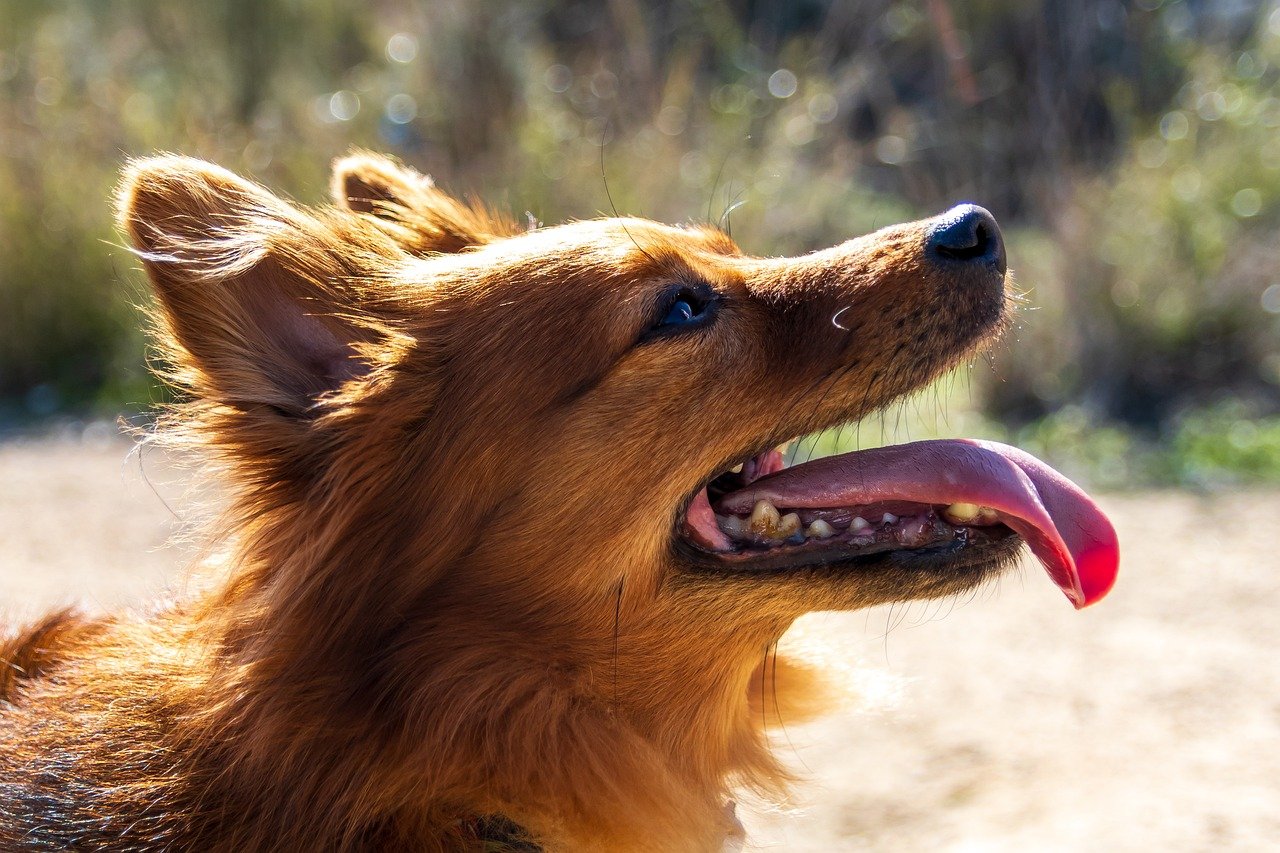
When to Seek Veterinary Care
Knowing when to consult a veterinarian is crucial for your pet's health, especially when they are experiencing diarrhea. While mild cases can often be managed at home with simple remedies, there are specific signs and symptoms that indicate a more serious issue requiring professional medical intervention. If your pet shows any of the following symptoms, it’s time to pick up the phone and call your vet.
First and foremost, if your pet has diarrhea that lasts more than 24 hours, it’s a red flag. Prolonged diarrhea can lead to dehydration, which can be dangerous, especially for smaller pets. Dehydration can sneak up on you, so keep an eye out for signs such as dry gums, lethargy, or decreased skin elasticity. It’s like watching a balloon slowly deflate; the longer it goes on, the more concerning it becomes.
Additionally, if you notice any blood in your pet's stool or if the diarrhea is accompanied by vomiting, these are serious symptoms that warrant immediate veterinary attention. Blood can indicate a range of issues, from infections to more severe conditions like gastrointestinal bleeding. Similarly, vomiting alongside diarrhea can lead to dehydration even faster, creating a double whammy that requires quick action.
Another critical factor to consider is your pet's overall behavior. If they seem unusually lethargic, are refusing food or water, or are in visible pain, these are signs that something more serious may be at play. Pets are great at hiding discomfort, but if you notice a change in their demeanor, don't ignore it. It's like when a friend suddenly becomes quiet and withdrawn; it often means something is bothering them.
For pets that are very young, elderly, or have pre-existing health conditions, the threshold for seeking veterinary care is even lower. These groups are more vulnerable to the effects of diarrhea and dehydration, so err on the side of caution. If you’re ever in doubt, remember that it’s better to be safe than sorry. A quick visit to the vet can provide peace of mind and ensure your furry friend gets the care they need.
In summary, here are the key signs that should prompt you to seek veterinary care:
- Diarrhea lasting more than 24 hours
- Presence of blood in stool
- Vomiting accompanying diarrhea
- Signs of dehydration (dry gums, lethargy)
- Unusual behavior (refusal to eat or drink, visible pain)
- Young, elderly, or pets with health issues experiencing diarrhea
Remember, your veterinarian is your best resource when it comes to your pet's health. If you're ever unsure about what to do, don't hesitate to reach out. They can provide guidance tailored to your pet's specific needs and help you navigate through the challenges of pet care.
Q: How can I tell if my pet is dehydrated?
A: Look for signs such as dry gums, lethargy, and decreased skin elasticity. If you pinch the skin and it doesn't spring back quickly, your pet may be dehydrated.
Q: Can I give my pet over-the-counter medication for diarrhea?
A: It's essential to consult your veterinarian before giving any medication to your pet. Some human medications can be harmful to animals.
Q: What should I feed my pet after they recover from diarrhea?
A: Gradually reintroduce their regular diet, starting with bland foods like boiled chicken and rice. Monitor their reaction to ensure they can tolerate it.
Q: Is diarrhea in pets always serious?
A: Not necessarily. Mild diarrhea can be caused by dietary indiscretion or minor infections. However, if it persists or is accompanied by other symptoms, it's best to consult a vet.
Frequently Asked Questions
- What are the common causes of diarrhea in pets?
Diarrhea in pets can stem from various issues, including dietary indiscretion, infections, parasites, and underlying health conditions. It's important to identify the root cause to provide appropriate treatment and care.
- How can I tell if my pet's diarrhea is serious?
Look for symptoms such as blood in the stool, persistent vomiting, lethargy, or if your pet hasn't eaten in over 24 hours. If any of these signs are present, it's crucial to seek veterinary attention immediately.
- Are there any home remedies for mild diarrhea?
Yes! For mild cases, you can try fasting your pet for a short period and then introducing a bland diet, such as boiled chicken and rice. Ensure your pet stays hydrated, as this is vital during recovery.
- What human foods should I avoid giving my pet?
Some human foods can be harmful to pets, including chocolate, grapes, onions, and fatty foods. Always check what’s safe before sharing your meals with your furry friend to prevent gastrointestinal upset.
- How can I transition my pet to a new diet without causing diarrhea?
To minimize digestive disturbances, introduce the new food gradually over a week. Start by mixing a small amount of the new food with their current diet and slowly increase the proportion over time.
- When should I take my pet to the vet for diarrhea?
If diarrhea persists for more than a day, or if your pet shows signs of dehydration, weakness, or other concerning symptoms, it's time to consult your veterinarian for a thorough evaluation.
- Can stress cause diarrhea in pets?
Absolutely! Stressful situations, such as moving to a new home or changes in routine, can upset your pet's stomach and lead to diarrhea. Providing a calm environment can help alleviate this issue.


